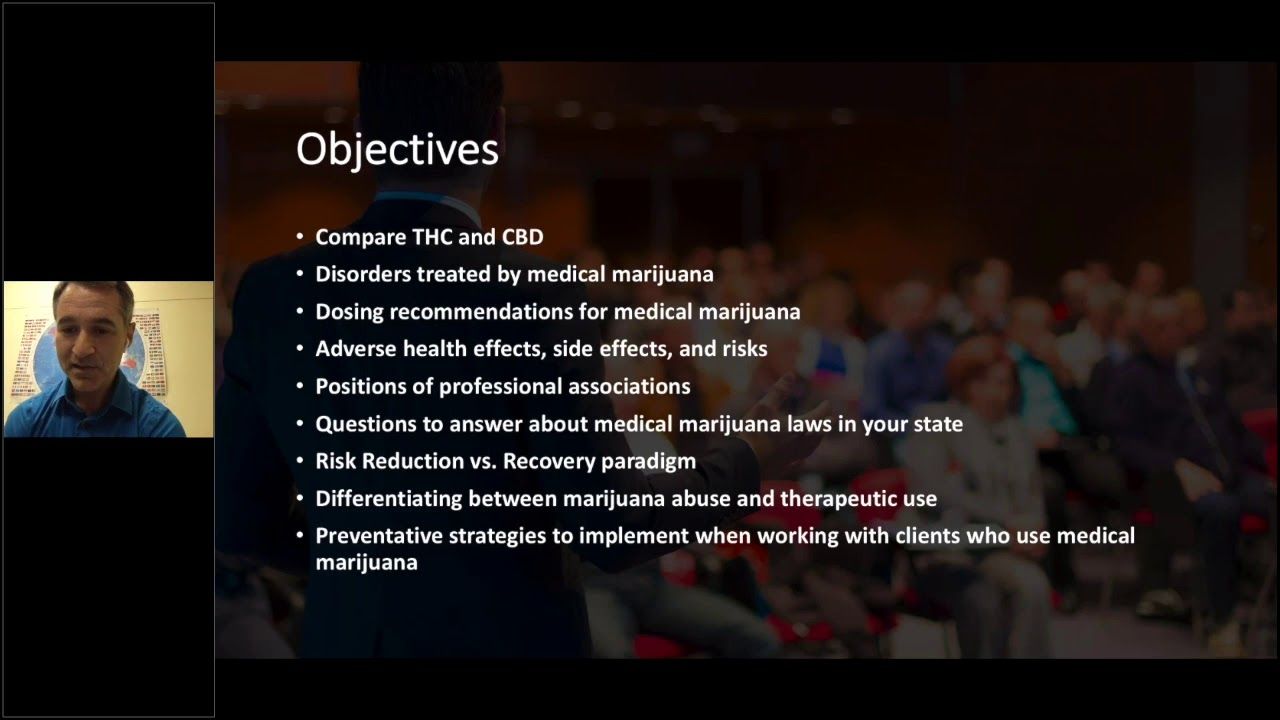What Mental Health Professionals Need to Know About Medical Marijuana
| thcscout | Medical | No Comments on What Mental Health Professionals Need to Know About Medical Marijuana
Share
- No bookmark found
1. What does the law say about medical marijuana in my state?
2. What is the difference between medical delta-9-tetrahydracannabinol (THC) and medical cannabidiol (CBD)?
3. How do I know whether my client is using medical marijuana therapeutically vs. abusing it?
4. What does the research say about what conditions medical marijuana might be helpful for, and which ones it can make worse?
5. What are the risks, side effects, and potential drawbacks of medical marijuana?
6. How do I know my client is overmedicated?
7. If my client uses medical marijuana, can employers discriminate against him or her?
8. What do I do if a client is referred to me for substance abuse treatment but is legally taking prescribed marijuana?
This 2-hour webinar seeks to provide attendees with answers to some of these questions, and resources for others.
Learning Objectives:
1. Understand the difference between medical THC and CBD.
2. Differentiate between the risk reduction perspective and total recovery perspective on marijuana use for individuals with co-occurring substance use and mental disorders.
3. Identify what disorders might be treated by medical marijuana.
4. Familiarize yourself with the positions of major healthcare associations on medical marijuana.
5. Learn about dosing recommendations and indications for medical marijuana.
6. Identify adverse health effects, side effects, and risks associated with medical marijuana.
7.Review a list of questions to answer about medical marijuana laws in your state.
8. Explore strategies to differentiate between marijuana abuse and therapeutic use of medical marijuana.
9. List several preventative strategies to implement when working with clients who use medical marijuana.
About the Presenter:
Aaron Norton is a Licensed Mental Health Counselor, Licensed Marriage & Family Therapist, Certified Master’s-Level Addictions Professional, and Certified Forensic Mental Health Evaluator specializing in substance abuse and co-ccurring disorders, clinical and forensic evaluation, and clinical supervision. He is a counselor educator at the University of South Florida’s College of Behavioral & Community Sciences, the Executive Director of the National Board of Forensic Evaluators, and the Chair of the Florida Mental Health Counselors Association’s Education, Training Standards, & Continuing Education Committee. He is recognized by the American Mental Health Counselors Association as a Diplomate & Clinical Mental Health Specialist in Substance Abuse & Co-Occurring Disorders. He was awarded Mental Health Counselor of the Year by the American Mental Health Counselors Association and Counselor Education of the Year by the Florida Mental Health Counselors Association in 2016. An experienced presenter and trainer, he has also been published in the Journal of Orthopsychiatry, Addiction Professional, and the Journal of Gay & Lesbian Social Services. He is completing his Ph.D. in Counselor Education & Supervision at the University of South Florida.
DISCLAIMER: Continuing education hours are only available to clinicians who attended the live webinar event on 6/14/18. This recoding was posted for educational purposes only.












